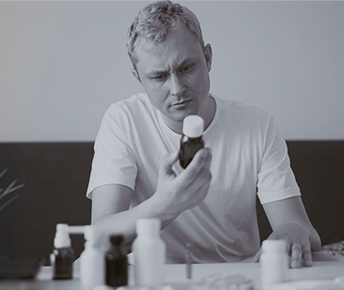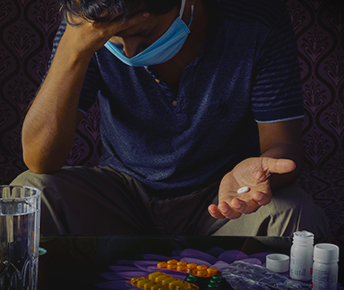Meth Withdrawal Symptoms: The Recovery Process
Withdrawal from meth isn’t just a rough few days—it’s a full-on war with your mind, body, and sometimes your very sense of reality. For those dealing with methamphetamine withdrawal symptoms, the path to recovery can feel overwhelming, especially when the drug once offered energy, euphoria, and escape. But here’s the truth: No high is worth the crash, and understanding the withdrawal problem is the first step to healing.
This article breaks down what to expect from meth withdrawal, how long it lasts, what the body and brain ; through, and most importantly—what you can do to get through it. We’ll also talk about the difference between meth addiction vs. meth dependence, the role of behavioral therapies, and how drug addiction treatment centers support recovery.
The Reality of Methamphetamine Withdrawal
Let’s be honest—meth use doesn’t start with the idea of becoming addicted. It begins with curiosity, an energy boost, a euphoric night, or a misguided sense of control. But repeated meth use changes brain chemistry rapidly, making it extremely difficult to stop without help.
When someone stops using meth, the body enters withdrawal mode. There are two principal phases to withdrawal:
- Acute Meth Withdrawal: This phase begins within the first 24 hours and usually lasts up to 10 days. It involves intense physical and psychological symptoms.
- Post-Acute Withdrawal Symptoms (PAWS): Also called protracted withdrawal symptoms, this phase can last weeks or even months, depending on the history of meth use, overall health, and whether other substances were involved.
Common Meth Withdrawal Symptoms
Symptoms vary by individual, but here’s what many people experience during methamphetamine withdrawal:
- Fatigue and excessive sleepiness (you may sleep for 12–18 hours at a time)
- Severe depression and suicidal thoughts. GET HELP.
- Intense cravings for meth
- Anxiety, paranoia, and sometimes hallucinations
- Increased appetite and body aches
- Cognitive issues, like memory problems or trouble concentrating
- Agitation or mood swings
Yes, it’s rough—but it’s temporary. With the right help, you will come out on the other side.
How Long Do Meth Withdrawal Symptoms Last?
Many people wonder: How many days do withdrawal symptoms last? That depends on the individual, but typically:
- Acute symptoms peak around days 2–3 and begin to subside within 7–10 days.
- PAWS symptoms like brain fog, anxiety, and cravings may last up to 30 days—or longer in severe cases.
It’s not linear, and recovery doesn’t look the same for everyone. But your brain does heal.
Meth Dependence vs. Meth Addiction
Let’s break this down. Meth dependence means your body has adapted to the drug and needs it to function normally. Meth addiction, however, is behavioral—it’s when you keep using despite consequences. You can be dependent without being addicted and addicted without realising you’re dependent.
Understanding this distinction helps determine your treatment needs and the kind of support you’ll benefit from, whether it be medication-assisted treatment, detox programs, or behavioral therapy.
Meth Withdrawal Risks
Meth withdrawal risks are both physical and psychological. Suicidal ideation, panic attacks, and aggressive behavior can occur during the first few days, especially if someone tries to detox without professional support.
This is why medically supervised detox at a drug addiction treatment center is often necessary. Health professionals monitor vital signs and mental health and offer supportive care so the process doesn’t become dangerous.
Treatment for Meth Addiction: The Role of Behavioral Therapies
Right now, there are no FDA-approved meth withdrawal medications the way there are for opioids. So, the mainstay of meth addiction treatment lies in behavioral therapies, which are incredibly effective.
Some proven approaches include:
- CBT (Cognitive Behavioral Therapy): Teaches you to challenge self-destructive thoughts and behaviors that lead to relapse.
- Contingency Management: This rewards staying clean, which can be highly motivating.
- Motivational Interviewing: Helps explore ambivalence and build internal motivation for change.
- Matrix Model: A structured outpatient program designed explicitly for meth dependence.
You can find these options through a behavioral therapist or behavioral therapy near you, often available through comprehensive substance abuse treatment programs.
Getting Through Withdrawal: What Helps?
So, what are three things that can help with withdrawal symptoms?
- Structure: A daily routine that includes rest, hydration, nutrition, and light movement.
- Therapy and Support: Professional help through therapy, peer support groups, or rehab centres.
- Self-compassion: Guilt and shame are normal—but you’re not your addiction. You’re a human in recovery.
And if you’re wondering, what are the symptoms of a detox?—think fatigue, mood swings, nausea, cravings, anxiety, and disrupted sleep. It's a storm, but storms pass.
Stages of Withdrawal and Recovery
Let’s lay out the stages of withdrawal clearly:
- Crash (1–3 days): Exhaustion, depression, increased appetite.
- Craving (4–10 days): Emotional volatility, drug dreams, agitation.
- PAWS (weeks to months): Lingering mood instability, brain fog, and emotional sensitivity.
Through each stage, healing is happening—even if it doesn’t always feel like it.
Conclusion: Recovery Is a Process, Not a Destination
Withdrawal is one of the hardest things you’ll ever ; through, but you can come out of it stronger. Each day clean is a win. The highs of meth can never compete with the clarity and freedom of recovery. Whether it’s your first attempt or your tenth, you’re not weak but still fighting.
Invest in professional help, seek behavioral therapy, and talk to someone. Recovery isn’t instant, but it’s worth every step.
FAQs
How many days do withdrawal symptoms last?
Acute withdrawal usually lasts 7–10 days, while post-acute symptoms can linger for weeks or months.
What are three things that can help with withdrawal symptoms?
Structure, therapy/support, and self-compassion are three powerful tools.
What are the symptoms of a detox?
Symptoms include anxiety, fatigue, mood swings, cravings, and physical discomfort.
What are the stages of withdrawal?
Crash, craving, and post-acute withdrawal are the three main stages.
How Can Samarpan Help?
At Samarpan, our expert-led recovery programs are designed to help individuals navigate the intense and often overwhelming experience of meth withdrawal symptoms with compassion, structure, and comprehensive clinical care. As a trusted drug recovery center, we understand that withdrawing from drugs like methamphetamine can lead to both severe physical and psychological challenges, including fatigue, anxiety, depression, insomnia, and intense cravings. Our medically supervised drug detoxification process ensures safety and stability during the earliest phases of recovery. From there, clients engage in personalised drug addiction therapy and de-addiction therapy designed to rebuild emotional regulation and self-awareness. With an emphasis on mental health awareness, we also address underlying issues such as personality disorders, depression symptoms, and anxiety symptoms, which often accompany long-term meth use. By incorporating therapeutic tools, trauma-informed care, and supplements for recovery, Samarpan fosters a healing environment where individuals can move through withdrawal with dignity and begin the journey to sustainable recovery through holistic drug rehabilitation.
























 Yes, many offer serene environments and solid therapeutic frameworks. However, quality varies, so it’s essential to research accreditation, staff credentials, and therapeutic depth.
Yes, many offer serene environments and solid therapeutic frameworks. However, quality varies, so it’s essential to research accreditation, staff credentials, and therapeutic depth.




